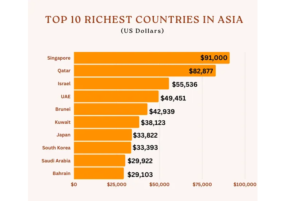Top 10 safest countries in Africa this 2025
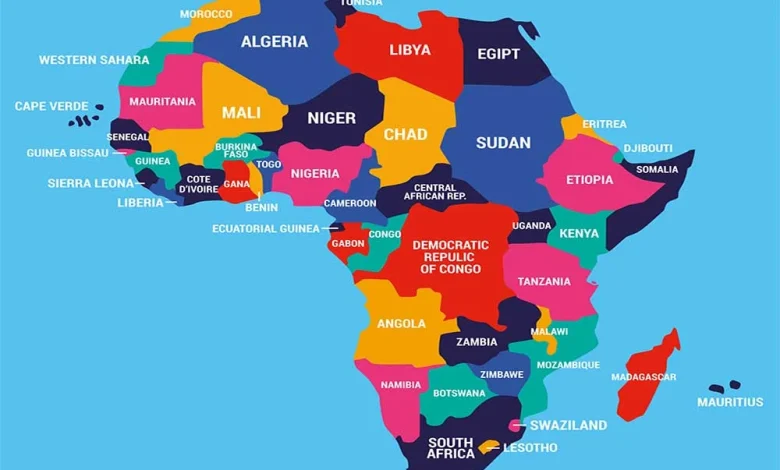
Africa, often misrepresented in global media, hosts numerous countries that rank among the world’s safest destinations. As we navigate through 2025, understanding which African nations offer the highest levels of security becomes crucial for travelers, expatriates, and investors seeking opportunities on the continent. This comprehensive analysis examines the top 10 safest countries in Africa, providing data-driven insights to guide your travel and investment decisions.
Methodology: How We Rank Africa’s Safest Countries
Our ranking methodology incorporates multiple internationally recognized safety indicators to provide a holistic view of each country’s security landscape:
Primary Data Sources:
- Global Peace Index (GPI) 2025 by the Institute for Economics and Peace
- Crime Index 2025 by Numbeo
- Travel Risk Assessment data from international security organizations
- Political Stability Indicators from the World Bank
- Health Infrastructure Quality ratings from WHO and international health organizations
Key Ranking Factors:
- Crime Rates: Violent crime, property crime, and tourist-targeted incidents
- Political Stability: Government effectiveness, civil unrest potential, and democratic institutions
- Health and Safety Infrastructure: Medical facilities quality, emergency services, and disease control
- International Conflict Involvement: External military conflicts and border security
- Social Security: Rule of law, corruption levels, and human rights protection
Each country receives a composite safety score based on these weighted factors, with recent developments and trends factored into the final rankings.
The Top 10 Safest Countries in Africa for 2025
1. Mauritius – Africa’s Safety Champion
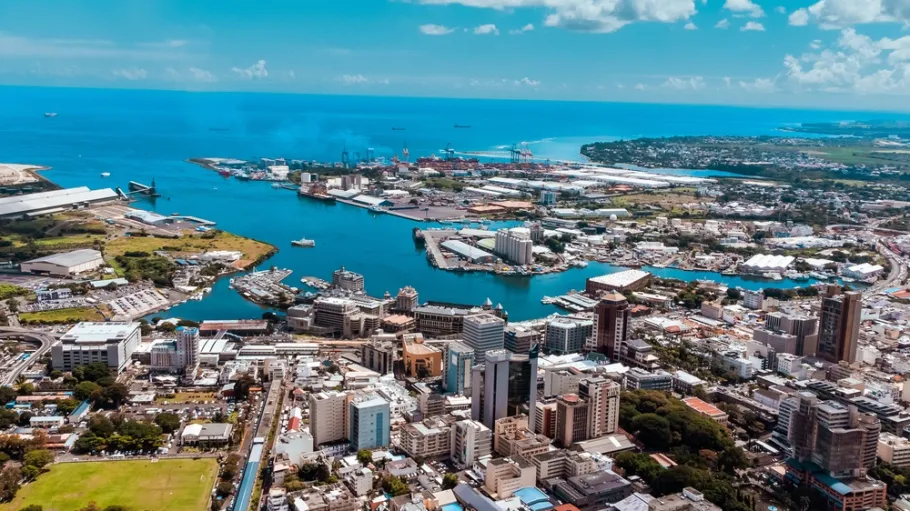
Global Peace Index Ranking: 23rd globally | GPI Score: 1.577
Mauritius ranks as Africa’s safest country in the Global Peace Index 2025, placing 23rd globally—ahead of Spain, the United Kingdom, and the United States. This island nation in the Indian Ocean has maintained its position as Africa’s most peaceful country for an impressive 18 consecutive years.
Why Mauritius is Safe:
- Ultra-Low Crime Rates: Your risk of becoming a crime victim here is lower than in Britain, New Zealand, Sweden, or Belgium
- Zero Terrorism Threat: In the Terrorism Index, Mauritius is in the green zone with a score of 0.000, indicating the lowest level of threat
- Political Stability: Robust democratic institutions with peaceful power transitions
- Excellent Healthcare: World-class medical facilities and health infrastructure
- Strong Rule of Law: Effective judicial system and low corruption levels
Travel Considerations: Mauritius offers pristine beaches, luxury resorts, and a multicultural society blending African, Asian, and European influences. The tourism infrastructure is highly developed with excellent safety protocols.
2. Botswana – The Diamond of Safety
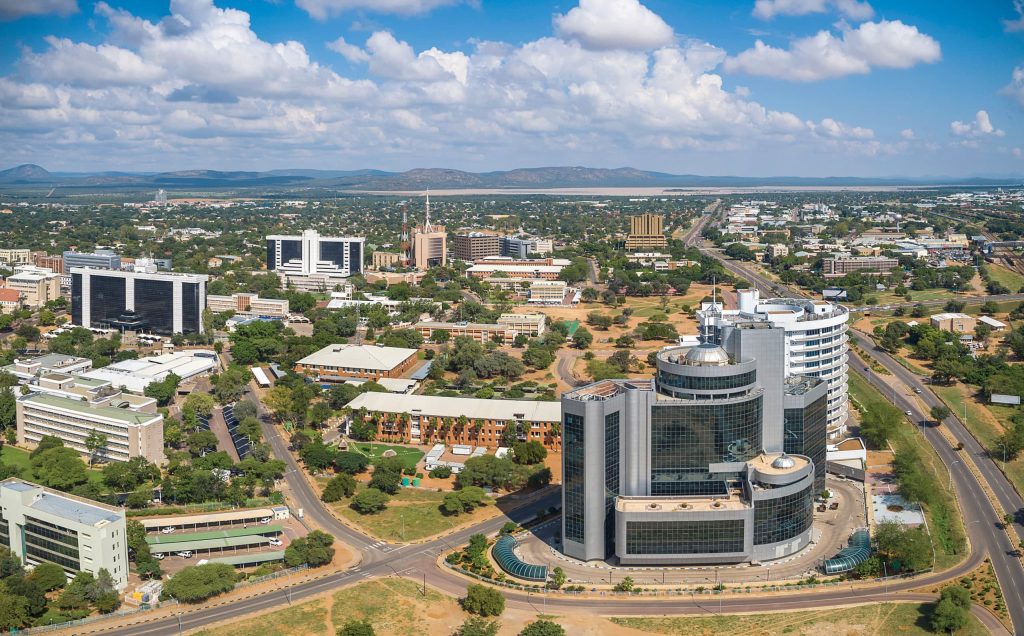
Global Peace Index Ranking: 30th globally | GPI Score: 1.676
Travel safety specialists at Travel Safe Abroad describe Botswana as “possibly the safest country in entire Africa”. This landlocked southern African nation consistently ranks among the continent’s most stable democracies.
Why Botswana is Safe:
- Democratic Excellence: Uninterrupted multi-party democracy since independence in 1966
- Low Crime Rates: Minimal violent crime against tourists and expatriates
- Economic Stability: Diamond wealth has funded strong institutions and infrastructure
- Healthcare Quality: Public services, such as roads and medical infrastructure are good across the country
- Minimal Civil Unrest: Civil unrest almost unheard of in recent years
Travel Considerations: Home to the Okavango Delta and excellent wildlife viewing opportunities. The Canadian government advises only normal security precautions, indicating exceptional safety levels.
3. Namibia – Desert Serenity and Security
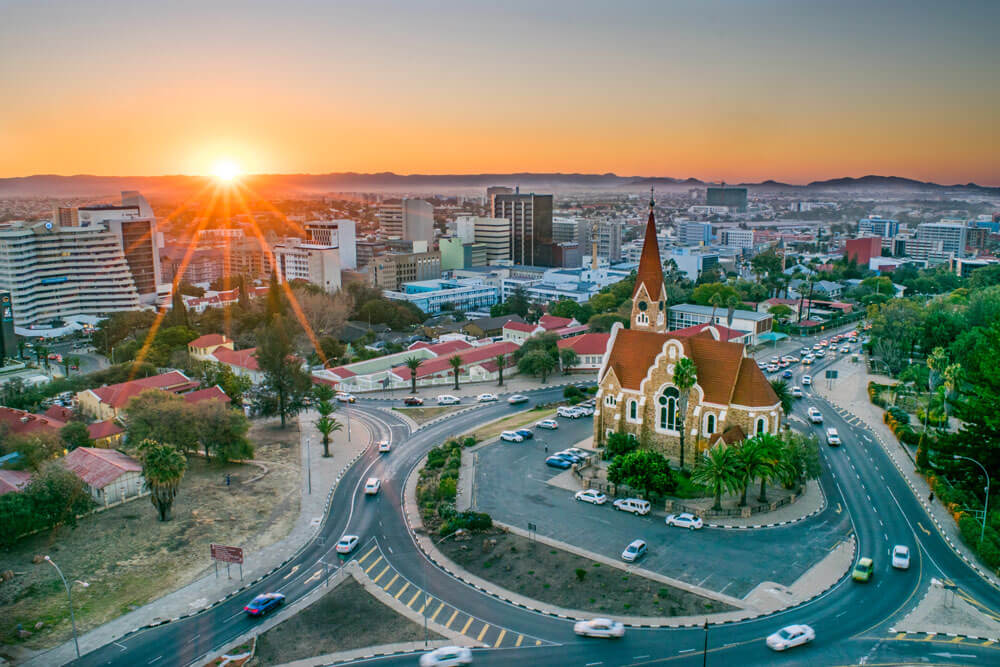
Global Peace Index Ranking: 56th globally | GPI Score: 1.859
Namibia landed in the 56th position in the 2023 Global Peace Index, and boasts some of the most rugged and picturesque landscapes in Africa. This southwestern African nation offers a unique combination of political stability and natural beauty.
Why Namibia is Safe:
- Stable Democracy: Peaceful elections and smooth governmental transitions
- Low Population Density: Reduces crime concentration and social tensions
- Strong Tourism Infrastructure: Well-developed safety protocols for visitors
- Effective Law Enforcement: Reliable police and security services
- Economic Development: Steady growth providing social stability
Travel Considerations: Features the Namib Desert, Skeleton Coast, and Etosha National Park. Infrastructure quality varies by region, with urban areas offering better facilities.
4. Ghana – West Africa’s Beacon of Stability
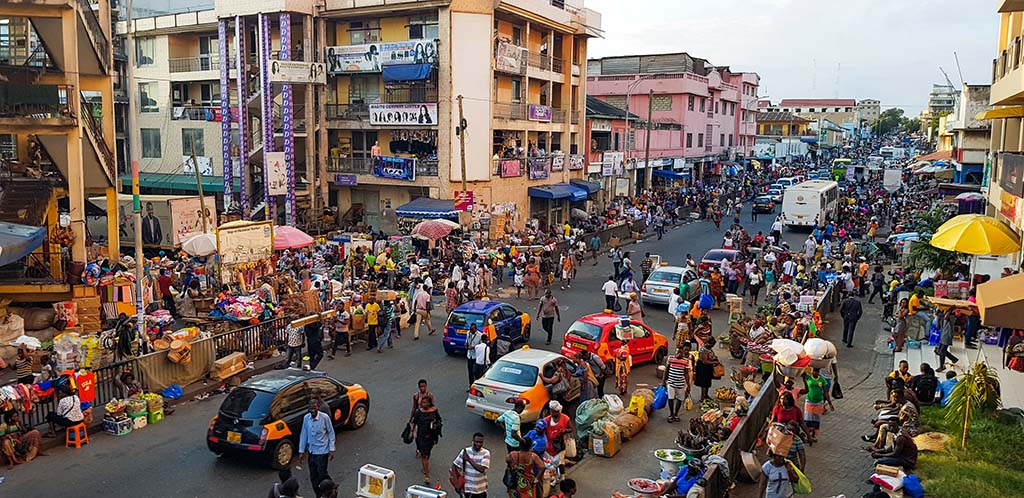
Global Peace Index Ranking: 38th globally | GPI Score: 1.759
According to the Numbeo Crime Index 2025, Ghana ranks among the top 3 countries with the lowest crime in Africa. This West African nation stands out as a regional leader in democratic governance and economic development.
Why Ghana is Safe:
- Democratic Leadership: Successful multi-party democracy with peaceful power transfers
- Religious Tolerance: High levels of interfaith harmony reducing sectarian conflicts
- Economic Growth: Steady development creating employment and reducing desperation-driven crime
- Community Policing: Effective local security measures and community involvement
- Cultural Hospitality: Strong traditions of welcoming visitors and protecting guests
Travel Considerations: Offers rich cultural heritage, including slave castles, vibrant markets, and beautiful coastlines. English is widely spoken, facilitating communication for international visitors.
5. Rwanda – The Land of Remarkable Recovery

Global Peace Index Ranking: 51st globally | GPI Score: 1.825
Rwanda ranks among the top 3 countries with the lowest crime in Africa according to the Numbeo Crime Index 2025. This East African nation has achieved extraordinary transformation following the 1994 genocide.
Why Rwanda is Safe:
- Strong Governance: Effective anti-corruption measures and efficient public services
- Community-Based Security: Traditional “Ubwiyunge” reconciliation fostering social cohesion
- Economic Progress: Rapid development reducing poverty-related crime
- Women’s Empowerment: High female parliamentary representation contributing to social stability
- Zero-Tolerance Crime Policy: Strict law enforcement maintaining order
Travel Considerations: Home to mountain gorillas, beautiful landscapes, and the modern capital Kigali. Strong environmental conservation policies and cleanliness standards.
6. Tunisia – North African Stability
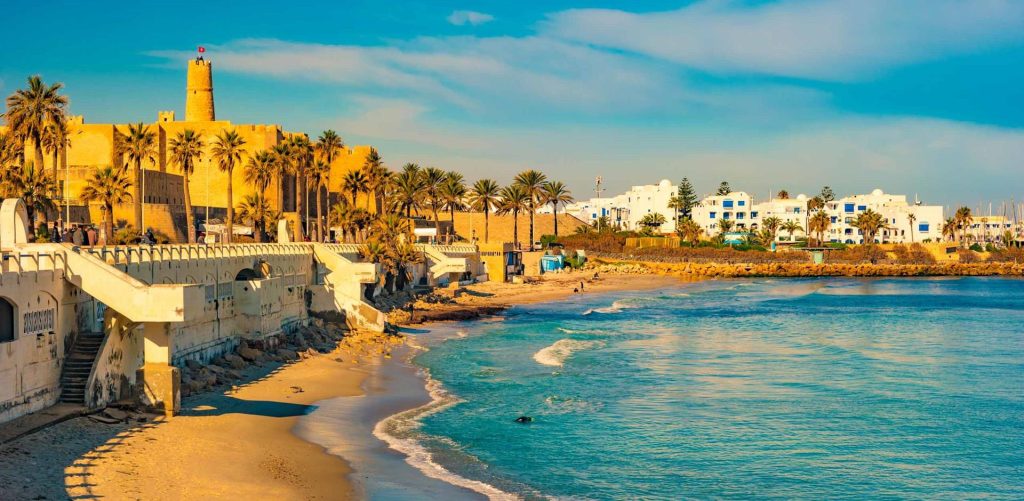
Global Peace Index Ranking: 65th globally | GPI Score: 1.921
Tunisia ranks among the top 3 countries with the lowest crime in Africa according to the Numbeo Crime Index 2025. Despite regional challenges, Tunisia maintains relative stability in North Africa.
Why Tunisia is Safe:
- Historical Stability: Long-standing institutions and administrative capacity
- Tourism Infrastructure: Well-developed security measures for the tourism sector
- Mediterranean Influence: Strong ties with European nations enhancing security cooperation
- Educational System: High literacy rates contributing to social development
- Moderate Climate: Geographic advantages reducing resource-related conflicts
Travel Considerations: Rich historical sites including Carthage ruins, Mediterranean beaches, and Sahara Desert access. European proximity provides additional security reassurance.
7. Morocco – Gateway to African Safety
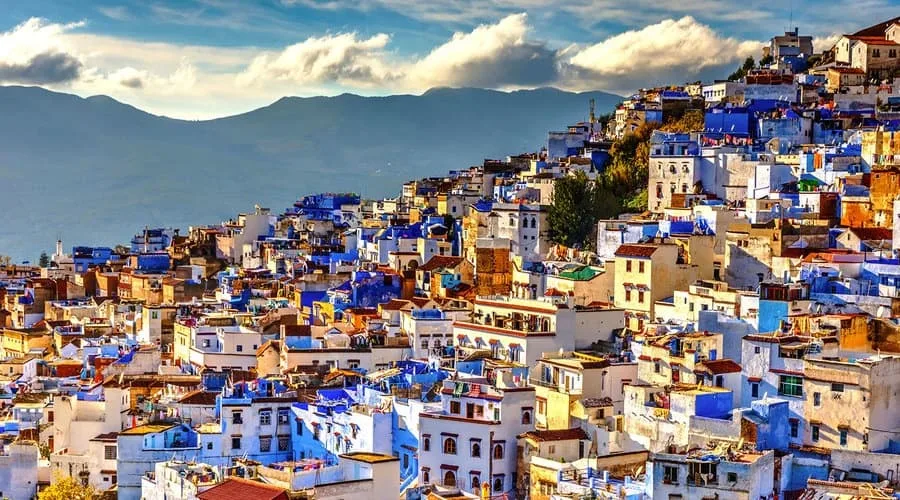
Global Peace Index Ranking: 72nd globally | GPI Score: 1.985
Morocco’s strategic position as a bridge between Africa and Europe, combined with strong monarchical institutions, creates a stable environment for residents and visitors.
Why Morocco is Safe:
- Monarchical Stability: Constitutional monarchy providing continuity and legitimacy
- Tourism Focus: Government prioritizing visitor safety to protect crucial tourism industry
- Regional Influence: Strong diplomatic ties reducing external threats
- Infrastructure Development: Ongoing modernization improving safety standards
- Cultural Tolerance: Diverse society with established traditions of coexistence
Travel Considerations: Offers imperial cities, Atlas Mountains, and Atlantic coastline. Well-established tourism infrastructure with experienced guides and security measures.
8. Zambia – Copper Belt Security

- Global Peace Index Ranking: 85th globally | GPI Score: 2.089
Zambia ranks among the safest destinations in Africa for 2025, benefiting from political stability and mineral wealth contributing to social cohesion.
Why Zambia is Safe:
- Peaceful Elections: Successful democratic transitions without significant violence
- Religious Harmony: High interfaith cooperation reducing sectarian tensions
- Natural Resource Management: Copper revenues funding development and security
- Regional Cooperation: Active participation in Southern African Development Community
- English Language: Official language facilitating communication and reducing misunderstandings
Travel Considerations: Features Victoria Falls, safari opportunities, and friendly local communities. Infrastructure quality varies, with tourism areas generally well-maintained.
9. The Gambia – Smallest, Safest West African Nation
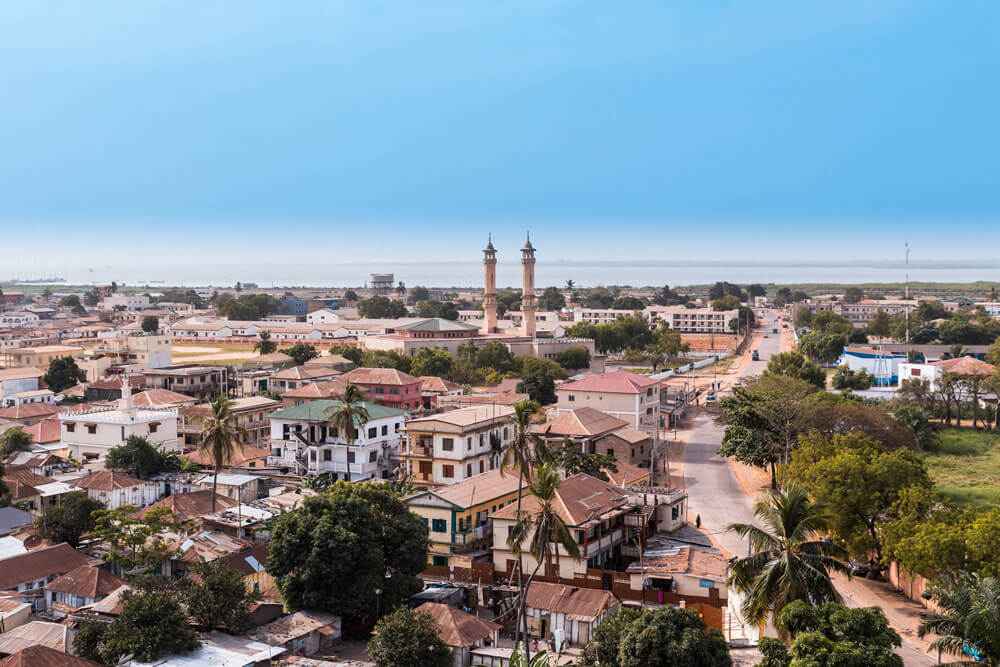
- Global Peace Index Ranking: 89th globally | GPI Score: 2.112
The Gambia ranks among the safest destinations in Africa for 2025. This small West African nation benefits from its compact size and strong community bonds.
Why The Gambia is Safe:
- Small Scale Governance: Compact territory enabling effective administration and security
- Tourism Dependence: Economy reliant on tourism, incentivizing visitor safety
- Cultural Homogeneity: Shared traditions and values reducing internal conflicts
- Atlantic Location: Coastal position limiting land-based security threats
- Democratic Progress: Recent successful transition to democratic governance
Travel Considerations: Known for beaches, bird watching, and cultural tours along the Gambia River. Small size makes navigation and emergency assistance more accessible.
10. Senegal – West African Democratic Model
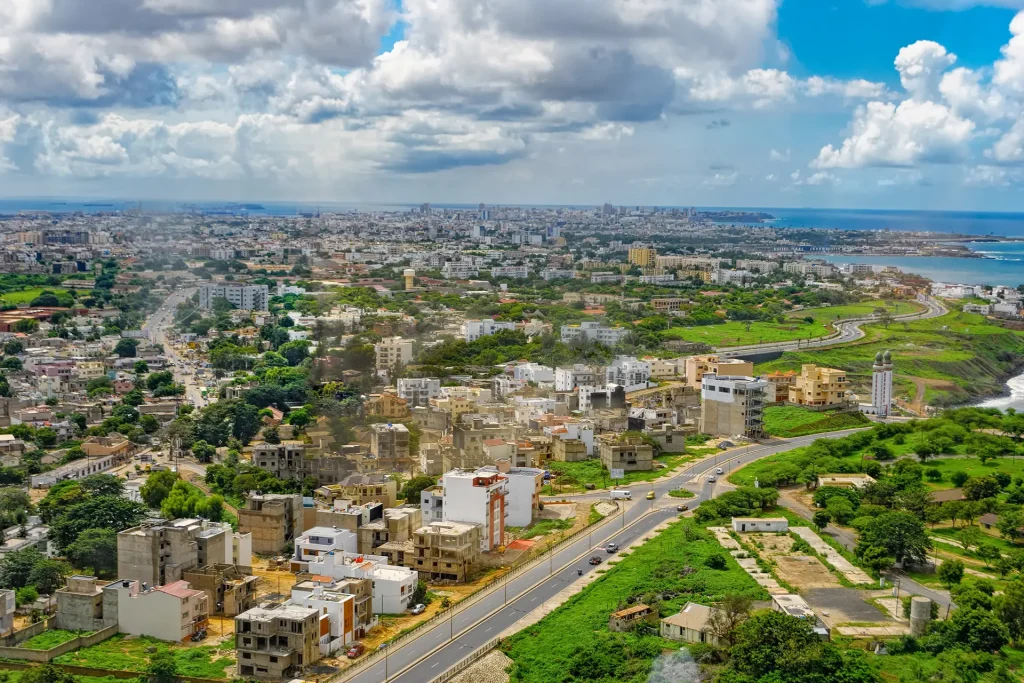
- Global Peace Index Ranking: 91st globally | GPI Score: 2.125
Senegal ranks among the safest destinations in Africa for 2025, standing out as a beacon of democratic stability in West Africa.
Why Senegal is Safe:
- Democratic Tradition: Consistent peaceful elections and civilian governance
- Religious Leadership: Influential Sufi brotherhoods promoting peace and tolerance
- French Influence: Strong institutional ties enhancing security cooperation
- Cultural Sophistication: Rich artistic and intellectual traditions fostering social cohesion
- Regional Stability: Generally peaceful relations with neighboring countries
Travel Considerations: Offers Dakar’s vibrant culture, Goree Island’s historical significance, and Saint-Louis colonial architecture. French language skills helpful but not essential.
Regional Safety Patterns and Trends
Southern Africa Leads in Safety
The dominance of southern African countries (Mauritius, Botswana, Namibia, Zambia) in our top 10 reflects several regional advantages:
- Resource Wealth: Mineral endowments funding stable institutions
- Democratic Maturity: Longer periods of multi-party governance
- Lower Population Densities: Reduced competition for resources
- Regional Cooperation: Strong Southern African Development Community ties
West Africa’s Democratic Progress
The inclusion of Ghana, The Gambia, and Senegal demonstrates West Africa’s democratic evolution:
- Peaceful Transitions: Recent successful elections without major violence
- Economic Diversification: Moving beyond single-commodity dependence
- Youth Engagement: Growing political participation among younger populations
- International Support: Strong backing from international democratic organizations
East African Recovery Stories
Rwanda’s presence highlights East Africa’s potential for rapid transformation:
- Post-Conflict Rebuilding: Successful reconciliation and development programs
- Regional Integration: Growing East African Community cooperation
- Technology Adoption: Digital solutions improving governance and security
- Women’s Leadership: Progressive gender policies enhancing social stability
Safety Tips for Travelers to Africa
Before You Go
- Research Specific Regions: Safety can vary significantly within countries
- Check Travel Advisories: Consult your government’s latest travel recommendations
- Obtain Appropriate Insurance: Ensure coverage for medical evacuation if needed
- Plan Health Precautions: Get required vaccinations and antimalarial medications
- Register with Authorities: Inform your embassy of travel plans
During Your Visit
- Stay Connected: Maintain regular contact with family or colleagues
- Use Reputable Operators: Choose established tour companies and accommodations
- Avoid Displaying Wealth: Keep expensive items and large amounts of cash secure
- Respect Local Customs: Follow cultural norms and dress codes
- Trust Local Advice: Listen to recommendations from reliable local sources
Emergency Preparedness
- Know Embassy Contacts: Save embassy phone numbers and addresses
- Carry Emergency Cash: Keep funds in multiple locations and currencies
- Maintain Communication: Ensure phone/internet access for emergencies
- Document Backup: Store copies of important documents separately
- Exit Strategies: Know multiple routes to airports and borders
Investment and Expatriate Considerations
Most Investor-Friendly Safe Havens
Mauritius leads for international business due to:
- Sophisticated financial services sector
- Strategic location for African market access
- Strong legal framework protecting investments
- Excellent infrastructure and quality of life
Botswana offers mining and tourism opportunities with:
- Transparent governance reducing investment risks
- Stable currency and economic policies
- Growing middle class creating market opportunities
- Strong property rights protection
Rwanda attracts technology and service investments through:
- Business-friendly regulatory environment
- Anti-corruption initiatives ensuring fair competition
- Strategic location for East African market access
- Government focus on attracting foreign investment
Expatriate Community Insights
The safest African countries typically offer expatriates:
- International Schools: Quality education options for families
- Healthcare Facilities: Adequate medical care meeting international standards
- Shopping and Dining: Familiar amenities and international cuisine
- Recreation Opportunities: Sports clubs, cultural events, and social activities
- Safety Networks: Established expatriate communities providing support
Frequently Asked Questions (FAQ)
Q1: How do African safety rankings compare globally?
Answer: Mauritius ranks 23rd globally in the Global Peace Index 2025—ahead of Spain, the United Kingdom, and the United States. Several African countries rank higher than popular European and American destinations in terms of safety and peacefulness.
Q2: What makes a country safe for tourists specifically?
Answer: Tourist safety depends on low crime rates targeting visitors, reliable infrastructure, effective emergency services, and government prioritization of tourism security. Countries like Mauritius and Botswana excel in these areas.
Q3: Are there seasonal safety considerations for African travel?
Answer: Yes, weather patterns can affect safety. Rainy seasons may increase disease vectors and transportation risks, while dry seasons might elevate fire risks and water scarcity issues. Plan according to specific regional climate patterns.
Q4: How reliable are African healthcare systems for international visitors?
Answer: Healthcare quality varies significantly. Mauritius, Botswana, and major cities in Morocco and Tunisia offer high-quality medical care. Remote areas may require medical evacuation insurance for serious conditions.
Q5: What role do international organizations play in African safety rankings?
Answer: Organizations like the Institute for Economics and Peace, United Nations, and World Bank provide standardized metrics enabling objective safety comparisons. Their data forms the foundation of most reputable safety rankings.
Q6: How has COVID-19 affected travel safety in these countries?
Answer: Most top-ranked African countries implemented effective pandemic responses, often outperforming many developed nations. Their healthcare systems proved resilient, and travel protocols remain well-managed.
Q7: Are there specific areas within safe countries that travelers should avoid?
Answer: Even in the safest countries, certain urban areas, border regions, or remote locations may present higher risks. Research specific destinations and consult local authorities for current security assessments.
Q8: What documentation is essential for safe travel in Africa?
Answer: Valid passport, appropriate visas, vaccination certificates (especially yellow fever), travel insurance, and emergency contact information. Some countries require specific health documentation or entry permits.
Conclusion
Africa’s safety landscape in 2025 presents a compelling narrative of progress, stability, and opportunity. With these ten countries—Mauritius, Botswana, Namibia, The Gambia, Sierra Leone, Madagascar, Ghana, Zambia, Senegal, and Rwanda ranking as the safest destinations in Africa for 2025, travelers can experience the continent’s beauty and culture without concern.
The data reveals that safety in Africa is not uniformly distributed but concentrated in countries that have invested in democratic institutions, economic development, and social cohesion. These nations demonstrate that African countries can achieve and maintain safety standards comparable to or exceeding those of developed nations elsewhere.
For travelers, the message is clear: Africa offers numerous safe destinations where you can experience rich cultures, stunning landscapes, and warm hospitality with confidence. For investors and expatriates, these countries provide stable environments conducive to business development and quality living.
As we move through 2025, these safest African countries continue setting examples for regional development while offering international visitors authentic African experiences without compromising on security. Whether you’re planning a safari adventure, beach vacation, cultural exploration, or business venture, Africa’s safest countries welcome you with open arms and robust safety measures.
The key to safe travel in Africa, as anywhere, lies in thorough preparation, staying informed about current conditions, and choosing destinations based on reliable data rather than outdated perceptions. These ten countries represent the best of what Africa offers: safety, stability, and unforgettable experiences in one of the world’s most diverse and fascinating continents.


